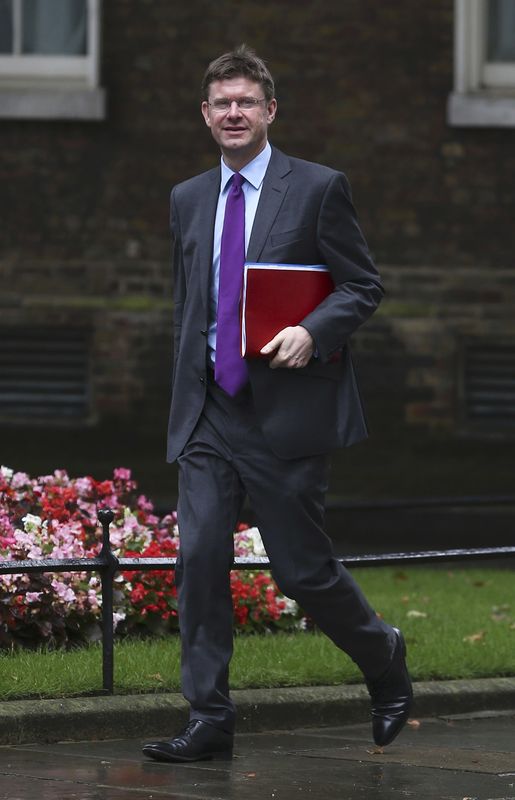By William James
LONDON (Reuters) - Prime Minister Theresa May on Tuesday kickstarted her bid to reshape the British economy for a post-Brexit world, reviving the once unfashionable concept of industrial policy 30 years after Margaret Thatcher killed it off.
May chaired the first meeting of the "Cabinet Committee on Economy and Industrial Strategy" in her Downing Street offices, bringing together the heads of 11 other ministries to set out her vision for a state-boosted industrial renaissance.
"The prime minister emphasised that the objective of the government’s new industrial strategy should be to deliver an economy that works for all," a spokesman said in a statement issued after the meeting.
After a referendum campaign that revealed dissatisfaction in many of Britain's struggling post-industrial regions, May is pitching a plan to reunite the country and strengthen her grip on power by raising the prospects of those who she casts as "hard-working people".
The June 23 vote to leave the European Union has raised serious questions about the future of the world's fifth largest economy, with some surveys indicating a recession, a hit to consumer confidence and a possible fall in investment.
The challenge is to find a formula that arrests a decades-long decline in Britain's manufacturing sector by helping firms tackle the challenges posed by globalisation without blunting the market forces that make them competitive.
The meeting focussed on ways the government could support growth in different areas of the country, the spokesman said.
Finance minister Philip Hammond told the meeting that by reducing the productivity gap between the rest of the country and London and the southeast, economic output could rise by 9 percent, adding over 150 billion pounds to the economy.
Ministers agreed the strategy should also be focussed on "playing to the country’s strengths while also creating an economy that is open to new industries, particularly those that will shape our lives in the future," the spokesman said.
That push that could help carmakers such as Jaguar Land Rover and Nissan and aerospace industry leaders like BAE Systems (LON:BAES) to weather the Brexit storm.
It is also geared to support the creation of new technology firms such as microchip designer ARM, which was sold to Japan's SoftBank last month for $32 billion.
Experts say recent efforts at implementing closer cooperation between the state and industries such as carmakers and aerospace have been partially successful, but need to be scaled up and placed at the heart of government thinking.
"The very fact that the new prime minister is chairing this committee, I hope, addresses one of the weaknesses of the last two administrations ... that is the relative lack of joined-up thinking, a cross-governmental approach," said Terry Scuoler, head of the EEF manufacturing trade body.
"If this committee chaired by the prime minister states something, it is going to be potent."
While policy detail is scarce, the strategy is likely to combine state-backed investment in traditional infrastructure such as roads and rail with funding for modern essentials such as broadband and lower energy costs, along with a push to train more of the highly-skilled workers that industry says it needs.
NOT PICKING WINNERS
Industrial policy has a toxic legacy in Britain.
It was once used to help failing national champions through a series of flawed policies in the 1960s and 1970s that sought to arrest a decline in manufacturing influence.
"We're not getting into the business of picking winners - it's more about creating the right environment," a government source who spoke on condition of anonymity said.
Already, less than a month after the fallout from the Brexit vote swept her into power, May has two major industrial headaches.
Last week, she surprised French utility EDF (PA:EDF) and China with a last-minute decision to review their project to build a nuclear plant in Britain, calling into question her approach to Chinese investment, which is seen as a crucial source of infrastructure cash.
Speaking after the meeting, the spokesman said Britain would continue to seek investment from around the world.
May also has to deal with Tata Steel, which put thousands of jobs under threat earlier this year when it said it wanted to sell its British steelmaking operation, citing high energy costs and low global steel prices. The firm is now investigating a possible joint venture instead of a sale.
"If Theresa May backs British manufacturing that is steel-intensive, then suddenly there’s a market here for British steel and that could make Port Talbot (steel plant) a viable operation," said Ben Orhan, analyst at IHS Global insight. "(But) it really depends where the focus is going to be."
The refocusing of Britain's economic policy, which for the last six years was aimed at balancing the books and heavily reliant on foreign money to replace state infrastructure spending, also carries a potentially huge political prize.
With the opposition Labour Party, long seen as the champion of the working classes, locked in a vicious internal ideological struggle and losing sway in its traditional heartlands, May has an opportunity to win over those who saw voting 'Leave' in the EU referendum as a 'nothing to lose' protest vote.
"The Brexit vote and euroscepticism was strongest in former manufacturing areas, where the industry has gone, the good jobs have gone and people feel disaffected," said David Bailey, professor of industry at Aston Business School.

"If May's going to do something about reconnecting, manufacturing has got to be part of the story."